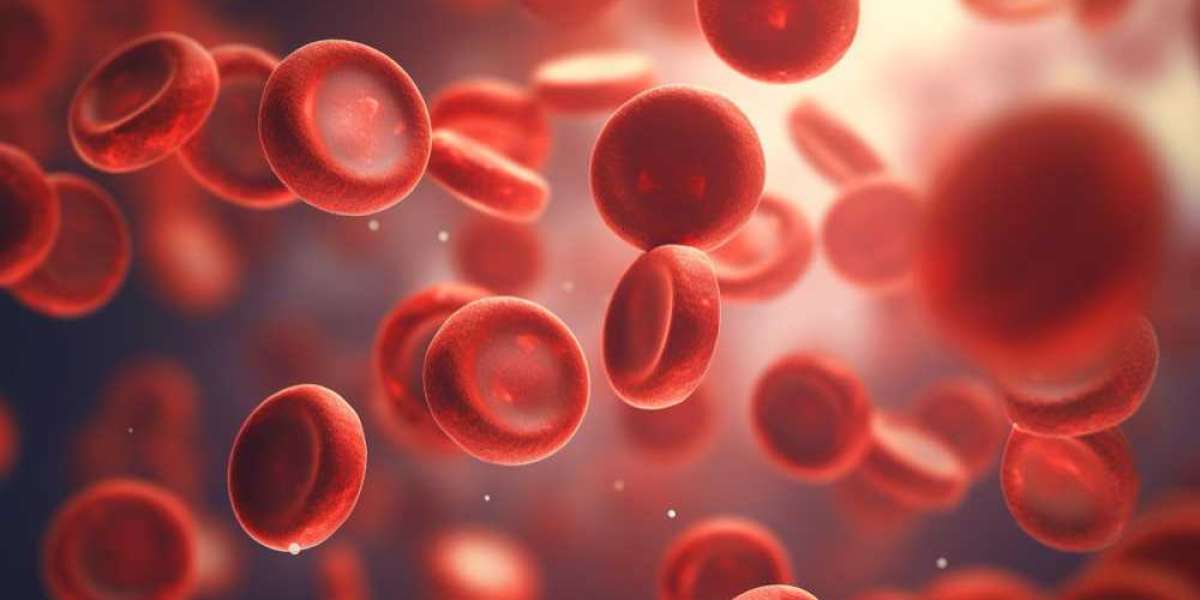The Battle Against Acute Myeloid Leukemia (AML)
The journey for those diagnosed with Acute Myeloid Leukemia (AML) can be daunting. With the rapid onset of symptoms, such as fatigue, frequent infections, and easy bruising, the need for immediate medical intervention becomes urgent. AML is categorized as a hematologic malignancy, and because it typically progresses quickly, early diagnosis and treatment are essential for improving survival outcomes.
The management of AML has evolved over the years, but the disease remains a significant challenge, particularly when it progresses to relapsed or refractory AML cases. In these instances, the disease no longer responds to conventional treatments, such as chemotherapy, making it harder for AML patients to find effective therapeutic options. As a result, patients with advanced stages of the disease often face grim prospects, and management of late-stage AML requires innovative approaches.
The Breakthroughs in AML Treatment
While the battle against AML is far from over, recent advancements in treatment have provided new hope for AML patients. One of the most notable breakthroughs has been the development of targeted therapies that specifically address the genetic mutations driving the disease. For example, several new acute myeloid leukemia drugs have been approved to target specific mutations found in certain subtypes of AML, offering a more personalized approach to treatment.
In addition, immunotherapy, which harnesses the body's immune system to fight cancer, has also made its mark in the field of AML treatment. Monoclonal antibodies, immune checkpoint inhibitors, and CAR T-cell therapy have shown promise in clinical trials, offering an innovative way to treat relapsed or refractory AML cases. These therapies aim to enhance the immune system’s ability to recognize and attack leukemia cells, potentially leading to better outcomes for patients who have exhausted traditional treatments.
Another key breakthrough is the use of bone marrow transplantation, also known as hematopoietic stem cell transplantation (HSCT). For patients with high-risk or relapsed AML, this procedure can provide a curative option by replacing damaged bone marrow with healthy stem cells from a donor. Advances in matching donors and improving post-transplant care have increased the success rates of HSCT, offering renewed hope for those battling AML.
Managing Late-Stage AML: Challenges and Approaches
The management of late-stage AML is one of the most challenging aspects of treating this disease. In relapsed or refractory AML cases, the leukemia cells have become resistant to initial treatments, and the disease has returned or does not respond to conventional therapies. At this stage, the focus shifts to prolonging survival and improving the quality of life for AML patients.
Chemotherapy remains the standard treatment for many AML patients, but for those with advanced disease, its efficacy is often limited. New strategies are being explored, including the use of combination therapies that pair chemotherapy with targeted agents or immunotherapies. These approaches aim to increase the likelihood of achieving remission or controlling the disease for a longer period.
Additionally, advancements in molecular profiling and genetic testing have led to a more nuanced understanding of AML's underlying causes. By identifying specific mutations in leukemia cells, doctors can better tailor treatments to the individual needs of each patient, offering more effective management of late-stage AML.
The Future of Acute Myeloid Leukemia Treatment
The future of acute myeloid leukemia treatment holds great promise. As research continues, more targeted therapies are being developed, focusing on the unique genetic makeup of each patient's leukemia. This personalized approach is expected to improve outcomes for AML patients, particularly those with relapsed or refractory AML cases who have limited options.
In addition to targeted therapies, the integration of artificial intelligence and advanced data analytics is transforming how AML is diagnosed and treated. By analyzing vast amounts of clinical data, AI algorithms can identify patterns and predict the most effective treatment regimens for individual patients, further enhancing precision medicine in AML.
Furthermore, ongoing clinical trials and research into gene therapy, epigenetic modifications, and the microbiome's role in cancer progression offer new avenues for therapeutic intervention. These innovative strategies may soon change the landscape of AML treatment, offering hope for a future where AML is no longer a death sentence but a manageable disease.
In conclusion, while the battle against Acute Myeloid Leukemia (AML) continues, the breakthroughs in treatment and research provide optimism for the future. The development of new acute myeloid leukemia drugs, personalized therapies, and innovative treatment strategies has already improved the lives of many AML patients. As research progresses, the future of acute myeloid leukemia treatment looks bright, with new therapies and technologies paving the way for better outcomes and ultimately, a cure.
Latest Reports Offered By DelveInsight:
- Prader-Willi Syndrome Drug Market Heats Up: 5 Upcoming Challengers to Soleno’s VYKAT XR
- AI-Driven Diagnostics: Why are They the Next Big Thing in Healthcare?
- Sanofi’s Qfitlia Enters the Hemophilia Market—What Sets It Apart?
- Advances in Prader-Willi Syndrome Treatment: New Hope for Patients
- Revolutionary Advances and Bright New Horizons in Multiple Myeloma Treatment
Latest Reports:-
Childhood Atropine for Myopia Progression Market | Chronic Liver Disease Market | Diabetic Foot Ulcers (DFUs) Market | Diabetic Retinopathy Market | Narcolepsy Market | Obstructive Sleep Apnea Market | Plantar Fasciitis Market | Ureteroscope Market | Uterine Leiomyoma/Uterine Fibroids Market | Bacterial Vaginosis Market | Energy-Based Aesthetic Devices Market | Eosinophilia Market | Hyperhidrosis Market | Palmar Hyperhidrosis Market | Wasting Syndrome Market



